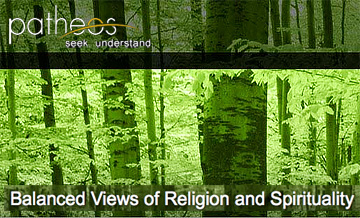As a pastor for over twenty years, I frequently chat with people who want to know the peace of God, but find it elusive. Their question – and perhaps your question as well – gets right to the point: How can I really know divine peace each day?
I’ll try to answer that question, but before I do I want to offer a couple of qualifications. First, the peace of God isn’t the result of some formula. It’s not something you can produce with magic. Rather, it’s a result of relationship with the living God, a God who cannot be put into a neat little box.
Second, I must confess that I can also let the experience of God’s peace slip away from me. I have always been a chronic worrywart and I easily let little things disrupt the Spirit’s gift of inner peace. That doesn’t invalidate what I’m about to say, however, because my advice comes from the Scripture, not from my own inconsistent experience. I simply want to be honest about my shortcomings.
 Peace is a gift from God. Every individual experience of peace rests, at its base, upon the peacemaking work of Christ on the cross. Knowing peace each day is, therefore, a blessing from God:
Peace is a gift from God. Every individual experience of peace rests, at its base, upon the peacemaking work of Christ on the cross. Knowing peace each day is, therefore, a blessing from God:
The Lord gives his people strength. The Lord blesses them with peace. (Psa 29:11).
May the Lord of peace himself always give you peace no matter what happens. (2 Thess 3:16).
Divine peace, whether in our hearts or in our relationships, comes from the hand of God. If you are lacking peace, don’t try to make yourself feel peaceful. Don’t begin with breathing exercises or soothing rationalizations. Rather, turn your heart to the Lord. Cry out to him for help. Spend time with him on a regular basis. I am always impressed by how much more peacefully I take on the problems of the day when I have begun that day with Christ. Since peace of mind and heart are his gift, this should come as no surprise (John 14:27).
The more you focus your mind upon God and the things of God, the more you will dwell in his peace. This theme appears throughout the Scripture. Isaiah says to the Lord, “You will keep in perfect peace all who trust in you, whose thoughts are fixed on you!” (Isa 26:3). Paul writes, “To set the mind on the flesh is death, but to set the mind on the Spirit is life and peace” (Rom 8:6, NRSV). If you are struggling with doubt or worry, I’ll bet that your mind is focused somewhere else, probably on yourself and your problems. Ask God for the grace to set your mind upon Him, and you will come to know his peace.
Prayer becomes the principle context in which this work of “mind-setting” occurs. In prayer we meditate upon God’s mercy and love. In prayer we lay our worries at God’s feet. You and I need to adopt Paul’s advice to the Philippians as our own:
Don’t worry about anything; instead, pray about everything. Tell God what you need, and thank him for all he has done. If you do this, you will experience God’s peace, which is far more wonderful than the human mind can understand. His peace will guard your hearts and minds as you live in Christ Jesus. (Phil 4:6-7)
Our individual experience of God’s peace depends, to a great extent, upon our participation in the community of God’s people. When we struggle with all those feelings that squelch God’s peace within us, our brothers and sisters in Christ will listen to us, pray for us, and encourage us. If you want to know God’s peace each day, make sure you don’t seek it alone.
In a nutshell, the peace of God is a by-product of genuine fellowship with God and his people.

